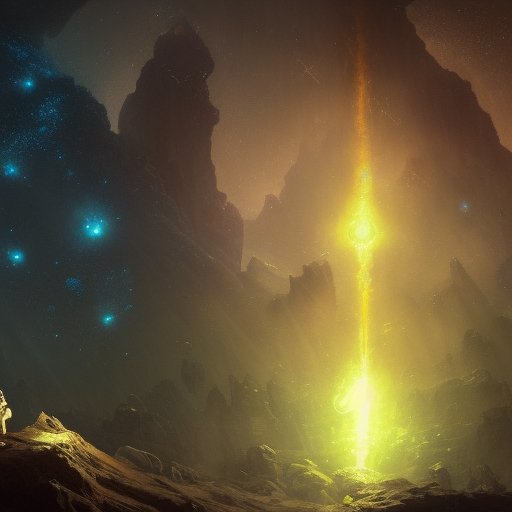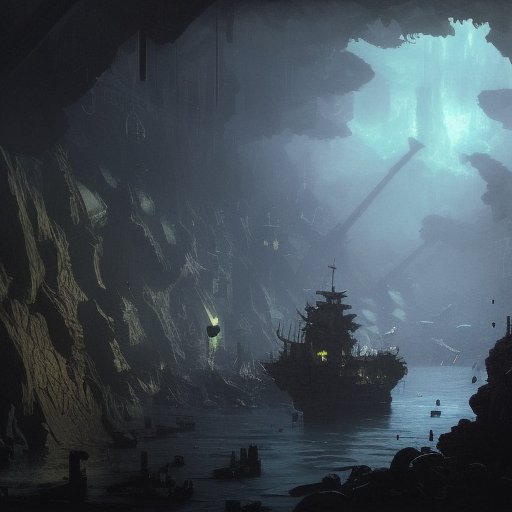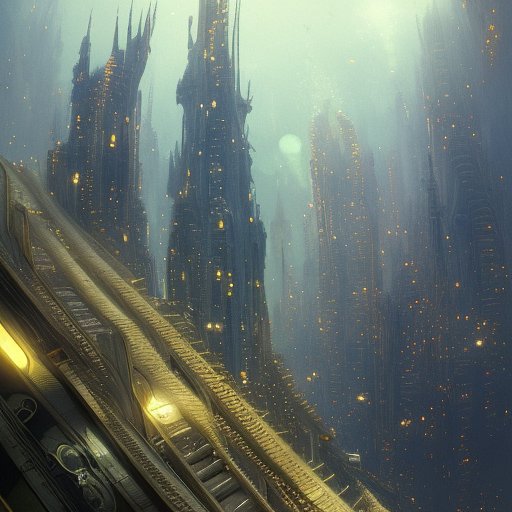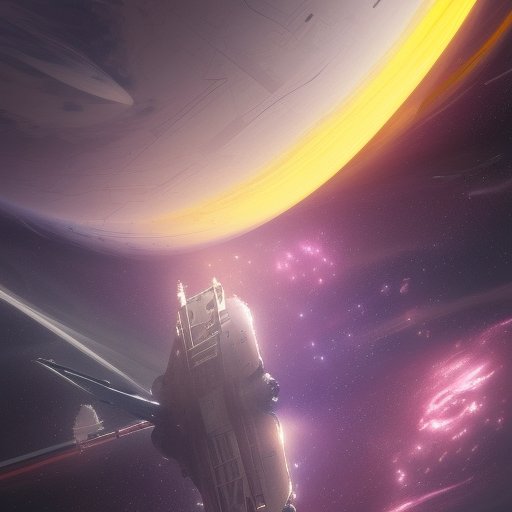
The mysteries of the universe have captivated humanity for eons, as we look up at the stars and ponder our place in the cosmos. With the latest advancements in astronomy and astrophysics, we are closer than ever to unlocking the secrets of the universe. From black holes and dark matter to the potential for extraterrestrial life, our understanding of the cosmos is expanding at an exponential rate. However, with great discoveries come ethical and philosophical questions that must be addressed as we continue to explore the vast expanse of space. Join us on an exciting journey through the cosmos as we decode the mysteries of the universe and push the boundaries of scientific exploration.
I. Introduction
Greetings, fellow space enthusiasts! Since our earliest days, humanity has been fascinated by the majestic and mysterious expanse of the universe. From our ancestors gazing up at the stars to modern-day astrophysicists using cutting-edge technology, the study of astronomy and astrophysics has captivated us for centuries.

But why is studying the cosmos so essential? The answer is simple: the more we learn about the universe, the more we understand ourselves and our place in the cosmos. Studying the stars not only helps us unravel the origins and structure of the universe but also informs us about our own planet Earth and the potential for life beyond our own planet.
Furthermore, the research and discoveries made in astronomy and astrophysics often lead to groundbreaking technological advances that have practical applications in fields such as medicine, engineering, and computing. From GPS technology to medical imaging, the contributions of space exploration to our everyday lives cannot be overstated.
Additionally, studying the universe stimulates our collective imagination and inspires creativity in fields such as literature, art, and music. Countless works of science fiction and fantasy have been inspired by the mysteries of the cosmos, and who knows what other brilliant ideas may be born from the depths of space?
As technology continues to advance, the possibilities for space exploration and discovery only grow more exciting. There are still countless mysteries yet to be unveiled, such as the prevalence of dark matter, the possibility of extraterrestrial life, and the mysteries of black holes.
In this article, we will delve into the latest findings and breakthroughs in astronomy and astrophysics, explore the technology and tools we use to study the cosmos, and consider the philosophical implications of our discoveries. Join us on this journey of scientific exploration and cosmic wonder!
II. The Cosmos Unveiled
Come, let us embark on a journey through the cosmos, uncovering the most recent and intriguing discoveries of the universe! Imagine a world where black holes swallow up everything in their path, dark matter hides in the shadows, and gravitational waves ripple through space and time.

In recent years, we have observed black holes merging together and sending gravitational waves across the universe, proving the theory of general relativity and opening up a new era of discovery. We have also begun to understand the elusive nature of dark matter, a substance that makes up the majority of our universe yet remains invisible to us.
The discovery of exoplanets, or planets outside of our own solar system, has also accelerated in recent years. With the launch of the Kepler mission in 2009, thousands of exoplanets have been discovered, some even resembling Earth and potentially habitable for life.
Moreover, our understanding of the earliest moments of the universe has advanced with the discovery of cosmic microwave background radiation, otherwise known as the afterglow of the Big Bang. This radiation carries important information about the birth and evolution of the universe, providing clues to the formation of galaxies and the distribution of stars and galaxies across the cosmos.
And let us not forget the awe-inspiring phenomenon of supernovas, the powerful explosions of dying stars that send shockwaves through space and time. These explosions yield precious insights into the chemical makeup of the universe and may even be responsible for the creation of the elements that make up our world.
Such discoveries are only the tip of the proverbial iceberg as we continue to unravel the secrets of the cosmos. Join us as we discover the wonders of the universe and explore the tantalizing mysteries that lie beyond our reach.
III. Behind the Telescope
If we want to explore the mysteries of the universe, we must first understand the technology that enables us to study the cosmos. Telescopes and satellites are the workhorses of modern astronomical research, providing us with detailed images and data that allow us to peer deep into space and time.

At the heart of any telescope is its optics: the lenses or mirrors that gather and focus light, allowing us to see distant objects more clearly. These optics can be enormous, from the giant segmented mirrors of the Keck Observatory in Hawaii to the 500-meter Aperture Spherical Telescope in China.
However, the optics are just the beginning. The telescope must also be stabilized and pointed precisely at the object of interest. This is accomplished using complex control systems that take into account everything from the telescope’s location on Earth to the movement of the stars in the sky.
But what if we want to study the universe beyond the limitations of Earth’s atmosphere? This is where satellites come in. The Hubble Space Telescope, for example, orbits Earth at an altitude of about 550 kilometers, allowing it to capture images and data that would be impossible to obtain from the ground.
Satellites also allow us to study different types of radiation that do not penetrate Earth’s atmosphere, such as X-rays and gamma rays. These telescopes use detectors made of specialized materials that can detect these highly energetic particles and turn them into electrical signals that can be analyzed by researchers on Earth.
Of course, all of this technology requires massive amounts of computing power to process the vast quantities of data generated by telescopes and satellites. Sophisticated algorithms are used to analyze this data, transforming it into detailed images and measurements that help us understand the universe.
Behind every great discovery in astronomy and astrophysics lies years of research, development, and engineering. The precision and complexity required to study the cosmos demand nothing less than the most advanced technologies and the brightest minds in science and engineering.
IV. Philosophical Implications of Space Exploration
As we gaze up at the stars and the infinite expanse of the universe, we can’t help but ask the big questions: What is our place in the cosmos? Are we alone in this vast expanse of space?

For centuries, astrology has been intertwined with spirituality and philosophy, inspiring countless thinkers and artists to explore the meaning of existence. The latest advancements in space exploration have only expanded these philosophical musings, as our discoveries challenge our understanding of consciousness and existence.
As we unearth more information about the universe, we begin to grasp the immense scale of the cosmos and our place in it. The seemingly infinite nature of our universe begs the question, what is the significance of human existence? Does the universe exist for our sake or are we but minuscule players in the grand scheme of things?
Our pursuit of space exploration also raises profound ethical questions. How should we interact with extraterrestrial lifeforms, and how might they impact our understanding of consciousness and existence? Could the discovery of alien life forms lead to a trans-formative shift in our perspectives on life and our understanding of the universe?
As we expand our knowledge of space and our place in it, our perspectives on reality begin to shift. This paradigm shift can be unsettling, but it can also be inspiring, opening up new possibilities for exploration and creativity.
V. The Future of Space Exploration
As we continue to learn more about the universe, the possibilities for the future of space exploration are endless. One particularly exciting next step is the prospect of colonizing other planets, such as Mars or even exoplanets in other star systems. With the installation of permanent settlements on other planets, we could potentially expand our civilization beyond Earth and ensure the continuation of humanity even if something catastrophic were to happen to our home planet.

Another futuristic concept is the creation of a Dyson sphere, a megastructure designed to surround a star and capture a significant portion of its energy output. This would provide essentially unlimited energy for our use and allow us to travel greater distances in space, opening up possibilities for interstellar travel and the exploration of more distant regions of the galaxy.
Furthermore, we may even one day discover other intelligent life within the cosmos, leading to potential interactions with extraterrestrial beings and even the possibility of intergalactic communication and trade. This could have massive implications for our society and the way we view ourselves within the grand scheme of the universe.
But with these exciting prospects come potential pitfalls and ethical considerations. We must carefully consider the impact of our actions on the universe and on any potential extraterrestrial life before moving forward with these ventures. The establishment of space settlements could lead to conflicts over resources, while the discovery of other intelligent life could pose a threat to our own existence or potentially lead to cultural conflicts.
However, with careful planning and thoughtful action, the future of space exploration holds immense potential for scientific advancement, technological breakthroughs, and even the expansion of our society beyond our current limitations. The universe is vast and full of endless possibilities, and we are only scratching the surface of what we can potentially achieve. So let us continue on this journey of discovery and exploration with curiosity, wonder, and responsible consideration.
VI. Dreaming of the Cosmos
As we gaze up at the skies and peer into the depths of space, we cannot help but feel a sense of awe and wonder. The beauty and majesty of the cosmos have inspired artists and writers for centuries, fueling their imaginations with endless possibilities of what lies beyond our own earthly existence.
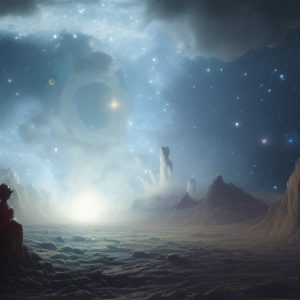
From Vincent Van Gogh’s “Starry Night” to Stanley Kubrick’s masterpiece “2001: A Space Odyssey,” the creative arts have long been intertwined with our fascination with the universe. Science fiction and fantasy authors have crafted entire worlds and civilizations set in the depths of space, imagining civilizations and creatures beyond our wildest dreams.
But it’s not just science fiction and art that have been inspired by the cosmos. Even science itself can be seen as a creative endeavor, as researchers and scientists push the boundaries of our knowledge and understanding of the universe. As physicist Richard Feynman once said, “I learned very early the difference between knowing the name of something and knowing something.”
The beauty of space is not just aesthetic, it is existential. It reminds us of our own smallness in the grand scheme of the universe, while also igniting a sense of curiosity and discovery.
Even the act of exploring space itself can be seen as a creative endeavor, as we seek to find new ways to travel through the vast distances of the cosmos, from faster-than-light travel to the invention of the Dyson sphere.
As we continue to unravel the secrets of the universe through science and technology, we must always remember the importance of creativity and imagination. In order to truly understand the universe and all its mysteries, we must embrace the wonders of the cosmos with a childlike sense of amazement and curiosity.
So let us dream of the cosmos, and allow the beauty and inspiration of space to ignite our own creative sparks. Who knows what discoveries and imaginative works may come from our continued exploration of the universe?
VII. The Dark Side of the Universe
Now, let’s shift our focus to the darker side of space exploration. While studying the cosmos can bring about incredible discoveries and technological advances, it also carries potential hazards and ethical considerations.

For example, our efforts to colonize other planets or moons could have unforeseeable consequences, such as accidental contamination of extraterrestrial environments or the introduction of invasive species. Furthermore, our search for life beyond our planet raises questions about how we would interact with any potential findings and whether interference with alien life could have negative consequences.
Additionally, space exploration carries inherent risks for human exploration, including exposure to radiation and microgravity environments that can have long-term health effects. And let’s not forget the dangers posed by meteoroids, space debris, and other potential hazards lurking in the void of space.
Moreover, the pursuit of space exploration requires incredible investments of time and resources, leaving some to question whether these resources could be better spent on solving problems here on Earth.
Despite these concerns, the drive to explore space remains strong. Many advocates argue that the potential benefits, such as the development of sustainable living technologies and the potential for interplanetary resource sharing, far outweigh the risks.
As we move forward in our exploration of space, it is crucial that we consider the potential downsides and take action to mitigate risks while also prioritizing ethical considerations. By doing so, we can ensure that our efforts to understand the universe do not come at too great a cost.
In the end, it is up to us to weigh the pros and cons and determine whether the mysteries and opportunities of space exploration are worth the risks and costs.
VIII. Conclusion
As we conclude this exciting journey through the cosmos, we are reminded of the vital importance of continued exploration and discovery in the field of astronomy and astrophysics. The mysteries of the universe are vast and varied, and each new discovery only hints at the endless possibilities for scientific and philosophical breakthroughs that still await us.

It is through the tireless efforts of scientists, engineers, and space enthusiasts alike that we have made such incredible strides in our understanding of the cosmos. And yet, as we uncover new secrets and push the boundaries of our knowledge, we are reminded that there is still so much left to discover.
As we move forward, it is essential that we do so with care and consideration for the potential impact of our actions on the universe, both in terms of scientific exploration and ethical considerations. We must prioritize sustainability and safety in our efforts to continue pushing the boundaries of space exploration.
With the rapid pace of technological advancements, the possibilities for space exploration and discovery have never been more exciting. From mind-bending concepts such as warp drives and wormholes to the very real potential of interstellar travel, the future of space exploration is limited only by our imagination and our willingness to take risks.
While we cannot know for sure what the future holds, we can be confident that with continued exploration of the cosmos, we will unlock new knowledge that will shape our understanding of ourselves and our place in the universe. So let us continue to gaze up at the stars with wonder and curiosity, ready to pursue new discoveries and embrace the mysteries of space. The universe awaits us, and the possibilities are infinite.
